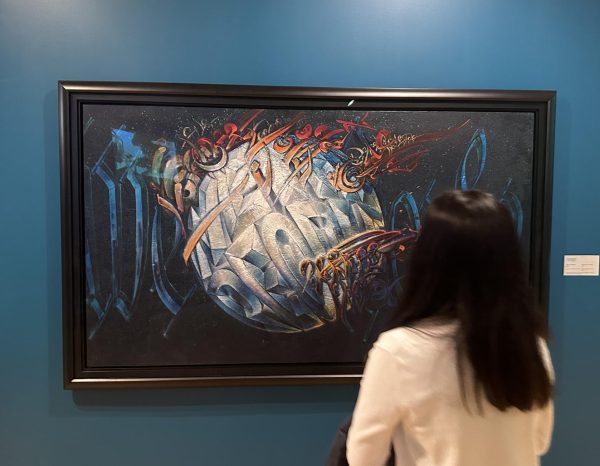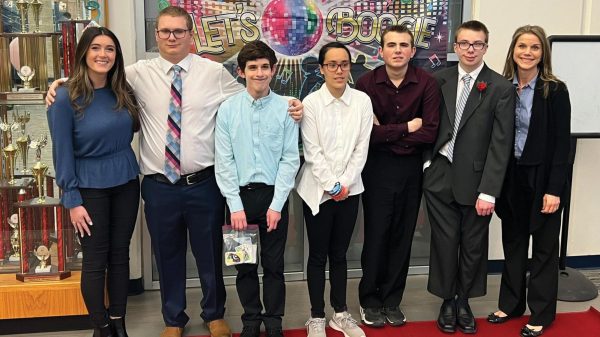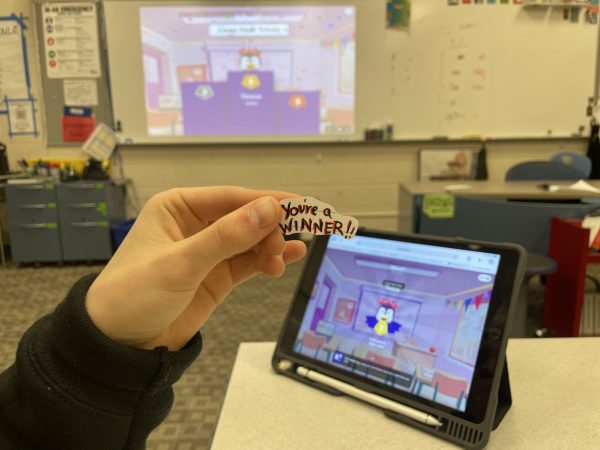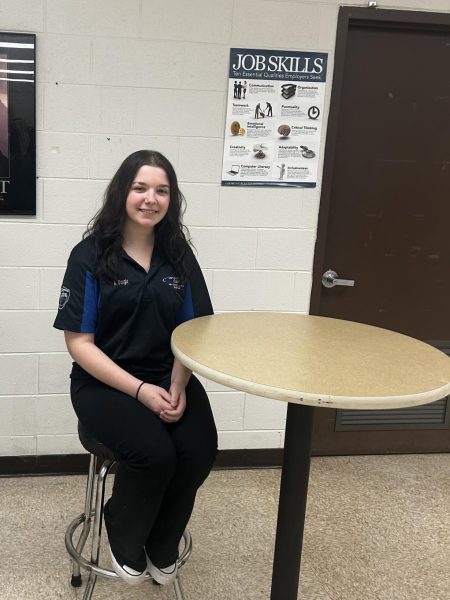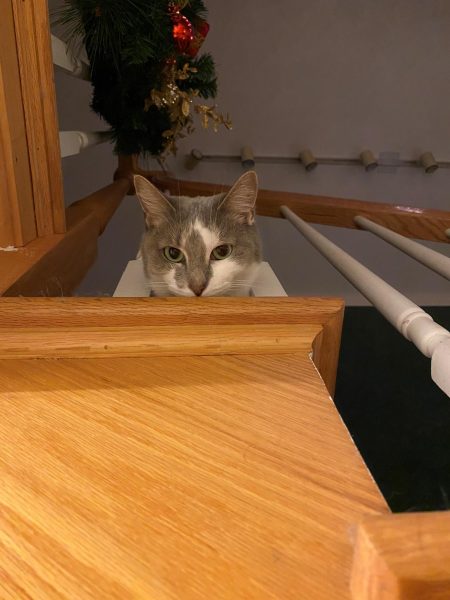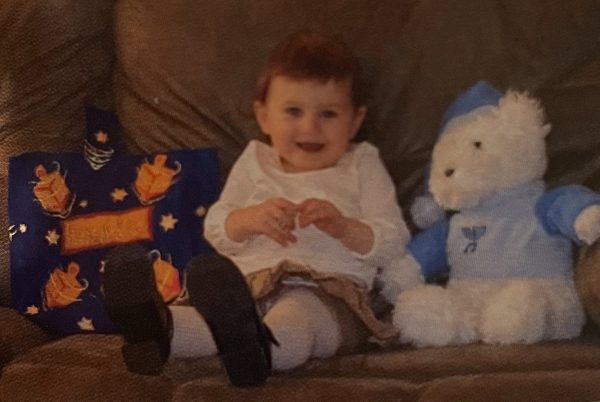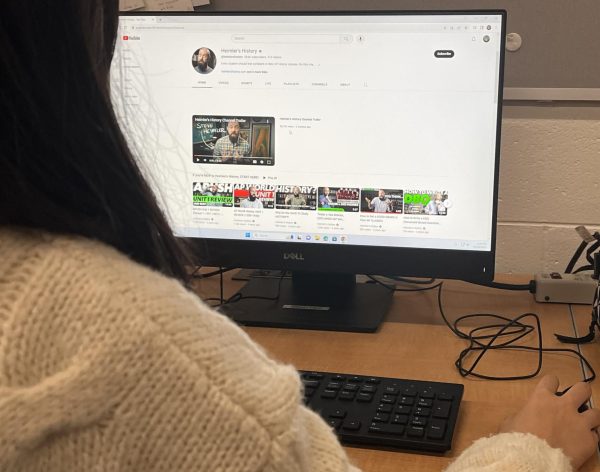Let’s Talk Tutoring
National Honors Society (NHS) wants its members to live up to the reputation of being students that excel in the areas of scholarship, leadership, service, and character. If you are a senior, and are part of the organization, you have already met all the requirements of being an NHS tutor.
“You’re required to get ten hours of tutoring and forty hours of volunteering for NHS in order to put it on any college applications or anything like that. But there’s a couple options for tutoring. You can get thirty minutes for working in the MRC, so I usually do that it’s actually really fun in there everyone is super nice. You also have to individually tutor someone at least one time. I’ve tutored someone in math and in science we’ll study for a test for a period or work on the homework otherwise when you’re tutoring one person they’ll just text you when they want to meet” Sydney Mathis, NHS Senior, said.
The recently revised organization utilizes its 76 students to operate a peer tutoring program through the school. In addition to tutoring, this year the tutors have publicized their peer editing program which allows students to get feedback on essays and writing pieces.
“You always learn your subject matter better when you teach it to someone else, so I think it strengthens their skills,” Carl Krause, college counselor, said. “Also giving back to the school is a big aspect as well as explaining those skills simple enough for someone else to understand.”
Sydney Mathis, NHS Senior
- Has been tutoring for about five or six hours which means ten or twelve periods in the math and science resource center
- Enjoys tutoring in math
Q: What do you think is the biggest misconception/fear about getting help from a tutor?
A: That it shows that you’re bad at something. I’m not bad at math, but I would love to have a tutor. I’m in Calc so people think I’m good at math, but I would love to have a tutor just to help me with something. You can be in harder math classes and need help, you can be in easier math classes and need help.
Q: How do you alleviate that fear for people who think it’s embarrassing to get help for something?
A: Whenever I’m in the MRC, there are people who are my age who will raise their hand for help and I have to go over there and I just usually try to keep it super casual and super conversational because I can guarantee you that at some point I didn’t know how to do that. I always figure it out with them, sometimes I’ll even have to look it up with them because I don’t know.
Q: What’s your most embarrassing moment tutoring?
A: When someone like a freshman needs help with a class like Algebra 1 and they’re using something like a compass, sometimes I don’t remember what to do and I have to go take it to another teacher and ask for them to explain it to me so I can go back and explain it to this kid.
Q: What’s your most challenging moment tutoring?
A: A lot of the stuff I haven’t seen before, or I’m not familiar with it at all, so usually I’ll go through their notes or the answer keys are wrong. It’s not too bad though, because there are always teachers there to help you.
Q: What was your most rewarding moment as a tutor?
A: I like it when I’ll ask a kid a question, because you can’t really tell if you’re a good tutor or not in the MRC, and then they’ll come back over to you and say, ‘can you explain this next one because it actually made sense last time’ or they’ll say something like, ‘oh my gosh that made it so much easier,’ something like that. Sometimes you can tell when a kid is like ‘alright, I need a different tutor because it did not make sense, and that’s super embarrassing.
Q: Do you think tutoring other students helps you as a student?
A: Yeah, I see other people tutoring and I think, ‘they’re really not good at tutoring,’ but it’s cool when you actually feel like you’re good at tutoring and you can figure something out or explain something. Sometimes I feel like ‘I just butchered that, and I cannot explain it,’ but I like it and I think it’s easier for me to ask questions.
Q: Does your tutoring have an effect on your career goals for the future?
A: I want to be a doctor when I’m older so I definitely want to work with people and be able to explain to them what’s going on or be able to relate to people and say this is what’s up. In that case, I would have more knowledge than them in medicine, but you don’t need to talk over their head. You need to explain it to someone who has no idea or is kind of worried about something. It’s the same thing as a math test, I might know more about this than them, but I need to be able to explain it because they just haven’t learned about that yet.
Olivia Pura, NHS Senior
- Enjoys tutoring in math
- Has been tutoring since the end of last year
Q: What’s your most embarrassing moment tutoring?
A: Oh my gosh, I had to explain what symmetry was, and you’d think it’s so simple to explain that, but when you have to explain something that makes sense to you, like symmetry, it was impossible. I was trying to explain it and draw pictures, but it was just impossible.
Q: What was your most rewarding moment as a tutor?
A: The person that I was tutoring in Algebra 2 missed a lot of school, and they came back to me after a couple tutoring sessions and told me that they felt really comfortable with it. It was just really cool to hear that and know that they understand it.
Q: What do you think is the biggest misconception/fear about getting help from a tutor?
A: I guess that they think it means that they’re not smart or that you’re stupid which is really not true. Not everyone is good at every subject, it’s not a matter of being smart, smart is just being better at one subject than another.
Q: Do you think tutoring other students helps you as a student?
A: Definitely. It forces you to look at something that you understand a different way, which makes you understand it even more.
Q: If you could tutor any of your teachers in one thing, what would you tutor them in?
A: I would have to tutor my English teacher in drawing. Is that even possible? Can you tutor someone in drawing? All my teachers need art tutoring. They always draw these things on the board and you just can’t even tell what they are.
Q: Do you think tutoring has benefited you as a person?
A: Yeah, it’s important to learn how to teach someone and not just be taught. I was never really good at helping helping other people like my younger siblings with school stuff, but after tutoring someone and really working with them it makes you a better teacher.
Scott Shadrick, NHS Senior
- Tutors in math and Science
- Joined at the end of his junior year
Q: How long have you been tutoring?
A: For NHS I’ve been tutoring since I joined last year as a junior.
Q: What’s your most embarrassing moment tutoring?
A: Last year I spent a whole period trying to help this one student answer one question for geometry and I couldn’t figure it out. I asked a bunch of teachers and found out that there was a typo so it was impossible. It took almost the whole period to find out, I was pretty flustered about that.
Q: What was your most rewarding moment as a tutor?
A: I had a student who was really struggling with Algebra 1 and he was trying really hard, but he just couldn’t figure it out. I worked with him about three or four times and he got a 100 percent on a test, then he got a 100 percent on another test and it was just pretty cool to see that happen.
Q: What do you think is the biggest misconception/fear about getting help from a tutor?
A: I think some kids think it’s only for if they’re stupid or if they’re dumb and that’s not true whatsoever. Everyone needs helps with something at one point in time and you’re not always going to understand it on the first run through. Some classes just move faster than you’re ready for, so it doesn’t mean anything against how smart you are if you go see a tutor to get some help.
Q: How do you alleviate that fear for people who think it’s embarrassing to get help for something?
A: I try to talk about the struggles that I’ve had as a student because when they see that the tutor struggles sometimes too they realize that it’s not such a big deal.
Q: Do you think tutoring other students helps you as a student?
A: I think it does, once you understand it enough that you can teach someone, it helps you understand it even more.
Q: Does your tutoring have an effect on your career goals for the future?
A: I want to go into medicine and become a doctor, which mostly has to do with math and science.
Q: If you could tutor any of your teachers in one thing, what would you tutor them in?
A: I would tutor Mr. Sipiera in math, he made some funny math mistakes last year and I just want to make sure that kids don’t make fun of him for it.
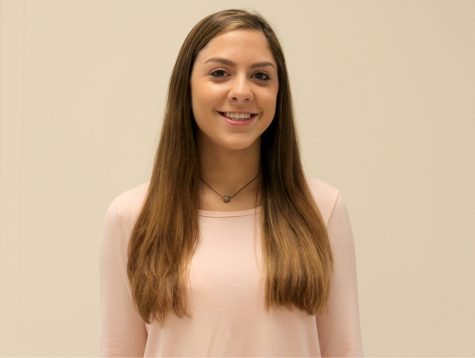
Dominique is the LZ Life Editor (aka the best section). Aside from Bear Facts, she spends her free time with her friends and getting involved in the...


